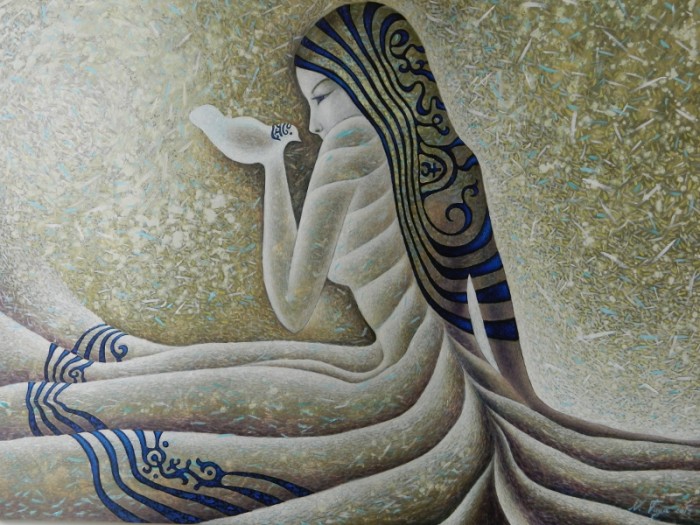The world began with words.
We are all of us wrapped in language—verses that summon us into being.
It starts with a name: A prophecy to which we must one day submit, or against which we might prevail in revolt.
My second name is Tova: “Good.”
No one ever told me I didn’t have to be, and I never considered it. When I finally encountered Mary Oliver’s poem, it was a jolt to the system.
I—we—can be defiant, messy, fierce and powerful, too.
Maybe I don’t want to be good. Good is a bit bland, after all—the beige walls in the many-chambered house of virtues. And good girls? They’re the stepping stones on which a patriarchy climbs.
Then again, maybe I do. Good is honest and straightforward—a mingling of compassion, kindness and warmth.
I suppose the distinction lies in perception.
Or maybe, maybe I want to leave good and bad—mean and nice; sweet and bitter—entirely out of the equation. Yes, I think I want to abandon this ship of shallow merits and swim for more interesting vessels.
“Wild,” I like. Powerful. Fierce. Sassy. Ugly, even—why not embrace the multifarious prism of this human condition?
Trouble-making. Electric.
The world may have begun with a word, but it evolved in movement—a ballet of idiosyncrasy. We, too, begin with words, but we too spiral out of the narrow pathways of language.
We can dance the truths for which words do not suffice.
Good is not big enough. (Bad is even smaller.)
I prefer the exuberance of multiplicity.
Don’t you?
Relephant Read:
You Do Not Have to Be Good (Mary Oliver Says So).
Author: Toby Israel
Editor: Emma Ruffin
Photo: Courtesy of Author.

 Share on bsky
Share on bsky







Read 5 comments and reply